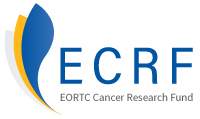Treatment of early-stage Hodgkin lymphoma (HL), which consists of a combination of chemotherapy and radiotherapy (RT) [1,2] is extremely successful, with a cure rate of more than 90%. However, toxicities surfacing years following treatment are of major concern and mainly include second cancers [3,4] as well as pulmonary [5] and heart-related diseases. [6,7] The H10 clinical trial was the first study to adapt the treatment of patients depending on the results of a PET scan after the first 2 cycles of chemotherapy.
In case of a negative scan, patients were spared the RT treatment to avoid long-term toxicities. The trial has shown that – in patients with favourable prognosis and a negative PET scan – progression free survival at five years (PFS, i.e., the chance of being alive without progression of the disease) was 99% in patients who received RT after chemotherapy, versus 87% in patients who were treated with chemotherapy alone. This means that RT cannot be spared in these patients. Nonetheless, the long-term impact of RT in early-stage HL patients is still to be evaluated in light of long-term (10-year) follow-up data from the study, currently still ongoing.
Conversely, the trial succeeded in showing that patients with a positive PET scan after the first 2 cycles of chemotherapy achieved better outcomes when given an intensified chemotherapy combined with RT. Specifically, the PFS rate at 5 years was 91% for the patients who received intensified combination therapy, versus 77% for those who received standard combination therapy.
Long-term follow-up results from this trial will shed more light on the outcome of patients who received or did not receive RT after chemotherapy, thus helping address the unmet need of sparing patients from RT and thus long-term toxicities, without compromising their survival rate.
Study coordinator: Prof. John Raemaekers



